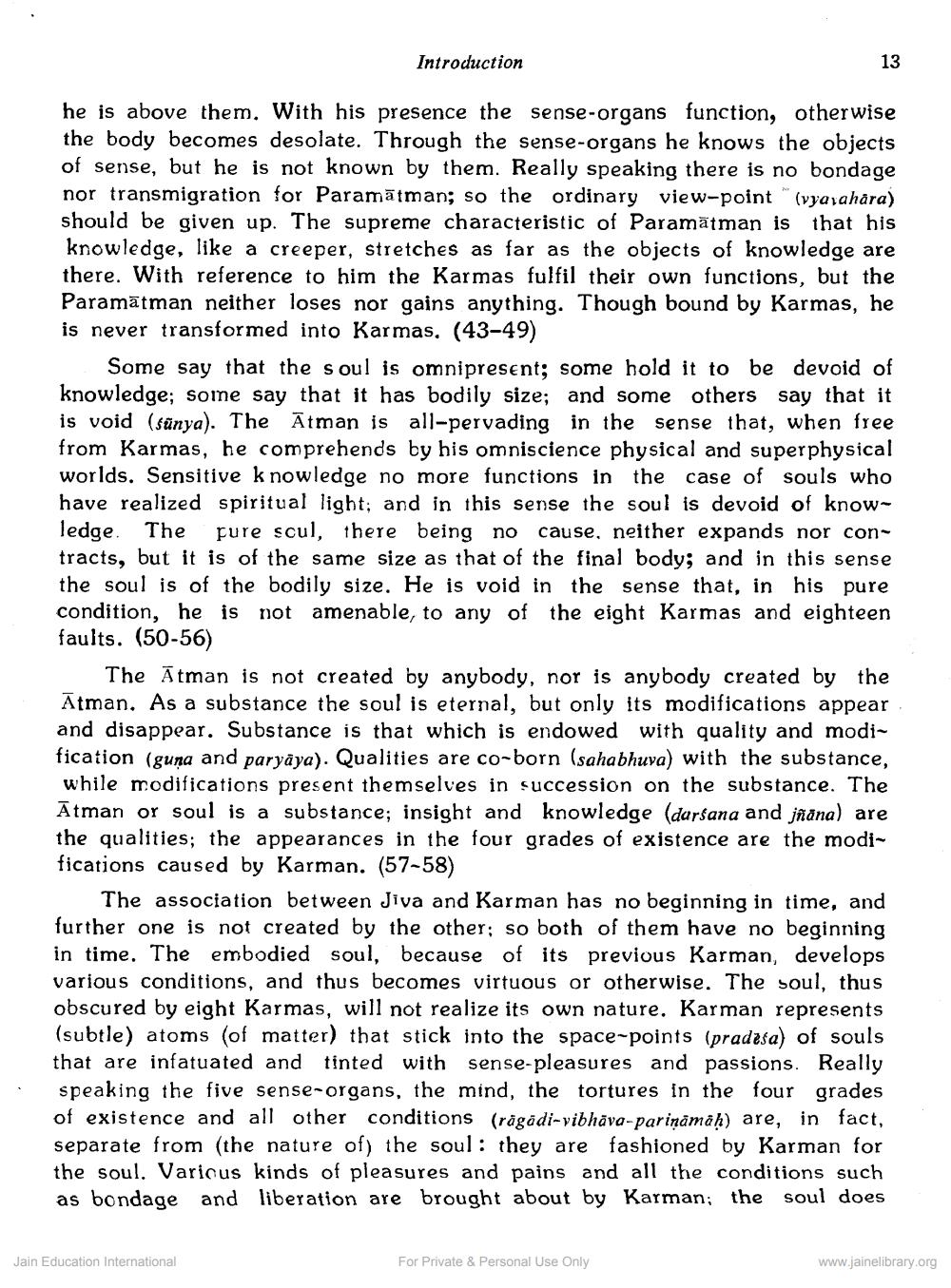________________
Introduction
13
he is above them. With his presence the sense-organs function, otherwise the body becomes desolate. Through the sense-organs he knows the objects of sense, but he is not known by them. Really speaking there is no bondage nor transmigration for Paramātman; so the ordinary view-point TM (vya ahara) should be given up. The supreme characteristic of Paramātman is that his knowledge, like a creeper, stretches as far as the objects of knowledge are there. With reference to him the Karmas fulfil their own functions, but the Paramātman neither loses nor gains anything. Though bound by Karmas, he is never transformed into Karmas. (43-49)
Some say that the soul is omnipresent; some hold it to be devoid of knowledge; some say that it has bodily size; and some others say that it is void (sünya). The Ātman is all-pervading in the sense that, when free from Karmas, he comprehends by his omniscience physical and superphysical worlds. Sensitive knowledge no more functions in the case of souls who have realized spiritual light; and in this sense the soul is devoid of knowledge. The fure scul, there being no cause, neither expands nor contracts, but it is of the same size as that of the final body; and in this sense the soul is of the bodily size. He is void in the sense that, in his pure condition, he is not amenable, to any of the eight Karmas and eighteen faults. (50-56)
The Ātman is not created by anybody, nor is anybody created by the Ātman. As a substance the soul is eternal, but only its modifications appear and disappear. Substance is that which is endowed with quality and modification (guna and paryaya). Qualities are co-born (sahabhuva) with the substance, while modifications present themselves in succession on the substance. The Ātman or soul is a substance; insight and knowledge (darsana and jñana) are the qualities; the appearances in the four grades of existence are the modifications caused by Karman. (57-58)
The association between Jiva and Karman has no beginning in time, and further one is not created by the other; so both of them have no beginning in time. The embodied soul, because of its previous Karman, develops various conditions, and thus becomes virtuous or otherwise. The soul, thus obscured by eight Karmas, will not realize its own nature. Karman represents (subtle) atoms (of matter) that stick into the space-points (pradasa) of souls that are infatuated and tinted with sense-pleasures and passions. Really speaking the five sense-organs, the mind, the tortures in the four grades of existence and all other conditions (rögödi-vibhāva-parinämäh) are, in fact, separate from the nature of the soul : they are fashioned by Karman for the soul. Various kinds of pleasures and pains and all the conditions such as bondage and liberation are brought about by Karman; the soul does
Jain Education International
For Private & Personal Use Only
www.jainelibrary.org




